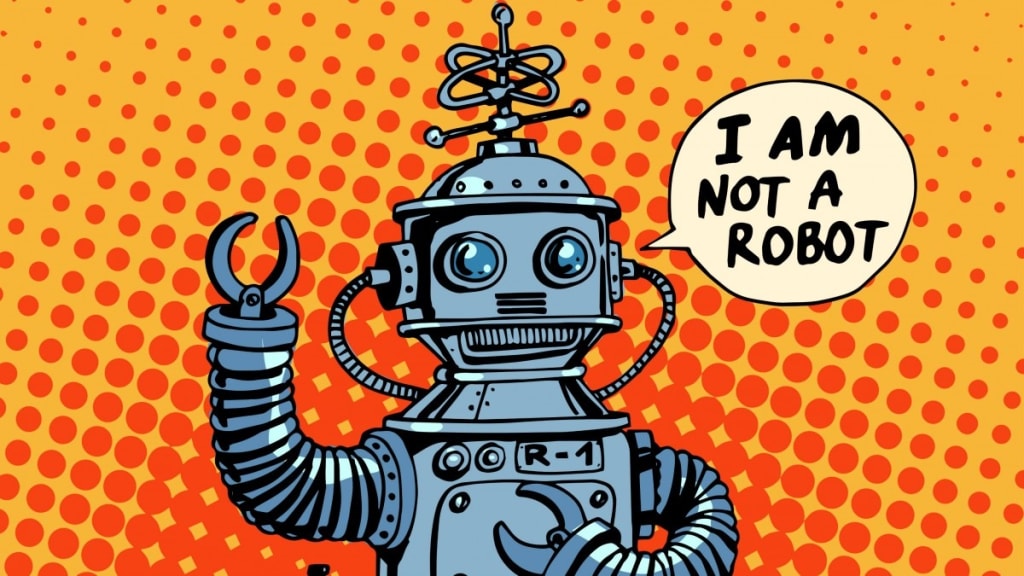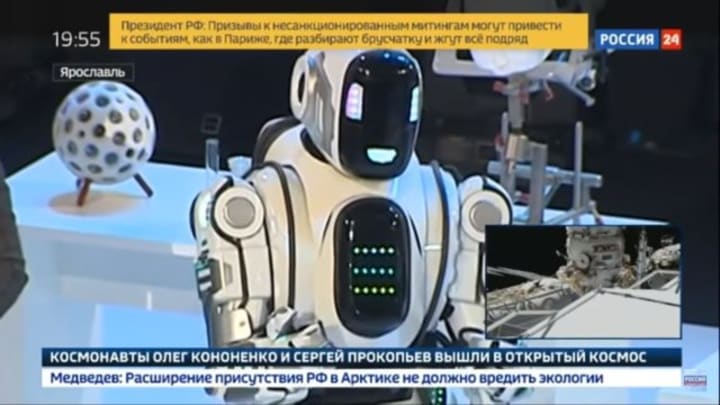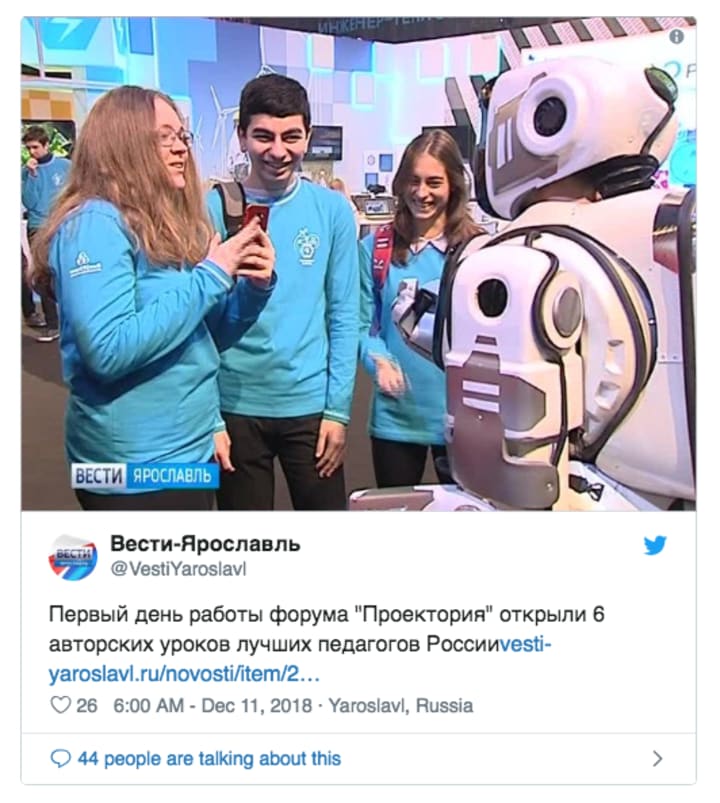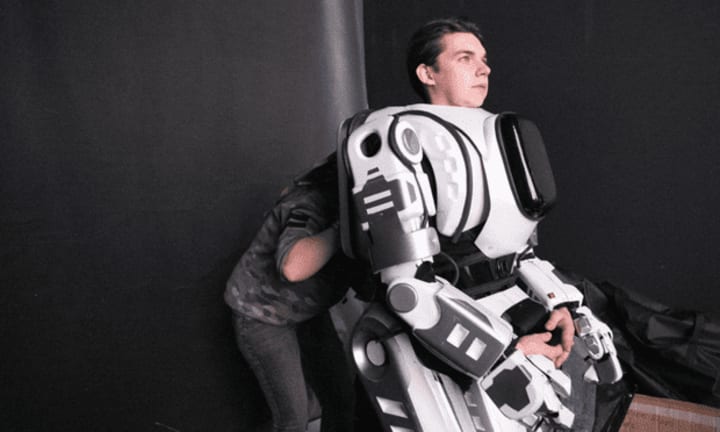The Tale of Boris, the Not So Intelligent Robot
A recent story out of Russia hailed a new robot as a sign of the state's success in mastering advanced technologies. However, the truth was soon unearthed thanks to the wisdom of the social media crowd, and the "robot" turned out to be the embodiment—literally—of "fake news."

Ah, the Ruskies! They are seemingly everywhere, and seemingly unstoppable these days. They are manipulating our elections, if not our President. They are invading their neighbors and flying bombers to Venezuela. They even have a leader who at 65 still proudly, and often, takes his shirt off in public...

Vladimir Putin #winning
And who can score five goals in a hockey game against a collection of the best professional players in the world...
It would seem as if Russia was on a roll, advancing everywhere we look. Russians seem to be taking over everything—from our social media to our politics to other countries, literally (ask the people of Crimea)!
And yet, everything that Russia says it does is not necessarily the truth, or pravda in Russian. (As if you believe there was any defense on those Putin goals!) Take for instance, its only working aircraft carrier: The Admiral Kuznetsov. For as much as the Russian military is feared around the world, the truth about the country's war-making capabilities is far, far less in reality.
And so, now we have yet another example of the well-overused term, "fake news," or what we used to call propaganda in the good old, far easier to understand "Cold War" days. His name is Boris...

Boris is the name of a robot hailed as a "technological breakthrough" on Russia 24—which is controlled by the Russian government. (And this intrepid researcher will warn you that, in visiting their website, they not only had pop-up ads, but also they wanted to send me "notifications!") Their original reporting of the Boris's appearance at a Russian technology conference can be viewed below.
The robot was supposedly built by a group of Russian "students." And if Boris was real, he (it) would represent a quantum leap in terms of robotic technology with the capabilities that he (it) demonstrated on the stage that day. He (it) had dance moves to rival any human... and that was one of the big clues that the android was not a real robot—and that something about Boris was very fishy! Twitter took notice, and soon, the Boris hoax was exposed by some very intrepid folks on social media!

As noted in the video below—and with more detail in an excellent article by Andrew Griffin, the technology editor and science reporter at the British publication, The Independent—there were any number of things that just were not quite right with the robot named Boris. And all of these clues, both those uncovered by techies and by just average folks, added up to the truth: Boris was just a man in a robot suit. Albeit, a very good robot suit! Yes, the dead giveaway was in a screen capture (shown in the Twitter post above) that showed the man in the suit's neck exposed. Then, the coup de grâce was the publication of a photo by MBKh Media, a Russian news agency reportedly sponsored by Mikhail Khodorkovsky, a vocal Putin opponent now living in Switzerland—for his safety—that captured a behind the scenes photo of the actual actor in the robot suit ahead of his (its) appearance at the tech conference.

And so now, the Russian media and the Russian government have a classic PR dilemma on their hands. It is one that many companies in even the freest of markets have had to deal with: That is that what they showed-off as their "latest, greatest technology" was not what they were truly capable of producing—at least at the moment.
Now admittedly, trying to pass-off a guy in a suit as a breakthrough in robotics technology is, shall we say, an act that defies all logic—especially in an age where thousands of folks around the world sit around all day, just to break down stories like they were analyzing the Zapruder film to find discrepancies and get likes on their Twitter posts. However, what the Russian media tried to boast as a groundbreaking robotics breakthrough that had not yet happened—and may not happen for decades—is not all that far away from what many companies commonly try to do with their marketing. After all, media—and investors—love to hear about the latest, the greatest, the coolest, etc. technology that will transform our lives. It is not uncommon for companies to showcase prototypes of new technology, new products, new vehicles, new devices, etc. that may not yet quite be ready for production. In fact, the technology may be years—sometimes a decade or more—away from commercialization. For instance, the auto industry around the world has a history of touting its tech advancements in concept cars that may have technologies that are many, many years way from being available in the cars that will actually be available for sale at your local dealership. Likewise, there have been many companies that have introduced a new product well-before it was truly "workable," and in many cases, there has been duct tape and other devices used just to make sure that a new item performed and/or appeared as it was supposed to do when the new product was being introduced to the public.
So all of this is not to excuse the Russians for bad behavior in this instance. Yes, according to an article on the matter in The Guardian, the motivation behind the appearance of Boris at a gathering of young scientists was to inspire them in their own creative works. And yes, the Russians got caught—some would say finally—in a case of #fakenews. However, this is one of those instances where yes, it is easy to pile-on. Yes, it is easy to laugh at the brazen attempt to pass-off a guy in a suit as an advanced android that had great dance moves and was "hip." Yet, is it really all that different than what occurs in the corporate world today? After all, how many of us have not went to a fast-food restaurant expecting the burger or the salad to look like what it appears in the company's advertising only to be sorely disappointed? How many of us have purchased an item that was touted as being "easy to assemble" that end-up being the cause of much cursing and consternation?
So, the lesson here is to be skeptical consumer of both the media and marketing today—wherever you are! Kudos though to those brave Russians who took on the state-run media (and in effect, the man without a shirt!) for pointing out that the robot was fake! The emperor cannot be too pleased when someone points out that he has no clothes—even Putin! But for all us, the wonder is that social media today, on a global scale, has a way of finding out the truth. That is the lesson of Boris the Robot for all companies—and yes, for all governments today!
Connect with the Author
Want to learn more about the work of Professor David C. Wyld? Connect with him here.
About the Creator
David Wyld
Professor, Consultant, Doer. Founder/Publisher of The IDEA Publishing (http://www.theideapublishing.com/) & Modern Business Press (http://www.modernbusinesspress.com)







Comments
There are no comments for this story
Be the first to respond and start the conversation.